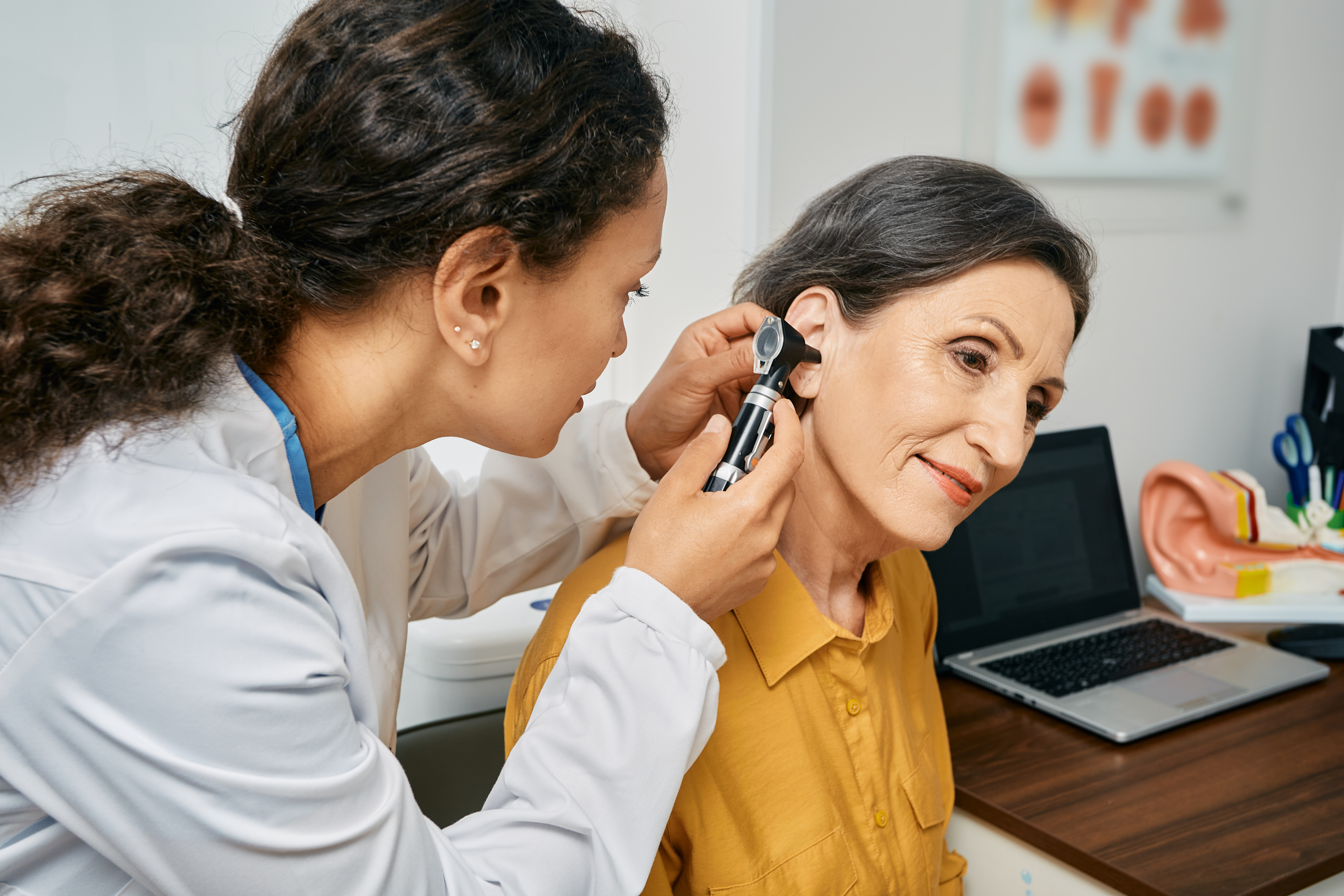Surgical ENT Solutions Explained: When Is It Necessary?
Surgical ENT Solutions Explained: When Is It Necessary?
Blog Article
Exploring the Area of Otolaryngology: What to Anticipate When You Consult an ENT
Otolaryngology, generally referred to as ENT, encompasses the medical diagnosis and therapy of throat, ear, and nose conditions. For those experiencing related concerns, getting in touch with an ENT expert can offer quality and relief. Understanding what to anticipate during such assessments is vital for effective interaction and treatment. This introduction will describe vital aspects of the ENT experience, consisting of common factors for sees and the processes included in medical diagnosis and treatment.

Comprehending Otolaryngology: An Overview
Otolaryngology, usually described as ENT (Nose, throat, and ear) medication, is a specific branch of medicine that concentrates on the diagnosis and treatment of conditions affecting these important locations of the body. This area encompasses a broad array of conditions, including those associated to hearing, equilibrium, respiratory function, and speech. Otolaryngologists are trained to manage both clinical and medical therapies, making use of innovative methods and modern technologies. Their experience expands past conventional ailments, resolving issues such as allergies, sinus infections, and hearing loss. Furthermore, they play an important duty in the administration of head and neck cancers cells, supplying comprehensive care customized to private person demands. In general, otolaryngology remains important for keeping wellness and lifestyle in afflicted individuals.
Typical Factors to See an ENT Professional
Numerous people seek the knowledge of an ENT professional for a variety of factors, reflecting the diverse nature of problems that affect the throat, nose, and ear. Usual concerns include persistent sinus problems, which frequently brings about relentless nasal blockage and face discomfort. Allergic reactions and their linked signs and symptoms, such as sneezing and itching, also prompt check outs to these experts (Voice). Hearing loss, whether steady or sudden, is another considerable factor for assessment. Additionally, individuals might look for assessment for throat disorders, including relentless hoarseness or ingesting troubles. Sleep apnea, characterized by interrupted breathing throughout rest, is often attended to by ENT experts also. Each of these problems highlights the relevance of specialized treatment in taking care of complex ENT-related health concerns
Getting ready for Your ENT Consultation
When planning for an ENT visit, it is important to gather appropriate information and take into consideration any type of details issues. Patients ought to assemble an in-depth medical background, including previous ear, nose, or throat concerns, surgical treatments, and current medicines. Documenting symptoms-- such as severity, period, and regularity-- can provide beneficial insights for the ENT expert. Additionally, individuals need to prepare a checklist of concerns they want to ask, guaranteeing that all issues are dealt with throughout the check out. Bringing along any kind of relevant medical records or examination outcomes can even more assist the ENT in comprehending the patient's problem. Finally, patients need to validate their appointment details, including area, time, and day, to lessen any kind of last-minute complication. Appropriate prep work can enhance the effectiveness of the appointment and bring about better end results.
What to Anticipate Throughout the Assessment
As the examination starts, the patient can anticipate to participate in a detailed conversation with the ENT expert about their signs and symptoms and medical history. The specialist will ask about the duration, frequency, and extent of signs and symptoms such as hearing loss, nasal blockage, or sore throat. In addition, the person's previous medical conditions, medicines, and any pertinent family members background will certainly be examined, helping the specialist in creating a full understanding of the patient's health. The ENT might also ask regarding lifestyle elements, such as direct exposure to irritants or toxic irritants. This open discussion establishes a structure for the appointment, nasal drip throat making certain that the client's issues are attended to and establishing the stage for any kind of needed evaluations or recommendations for treatment.
Analysis Examinations and Treatments in Otolaryngology
A series of diagnostic examinations and procedures are important in otolaryngology to precisely review and detect problems affecting the throat, ear, and nose. Common tests include audiometry, which determines hearing function, and tympanometry, evaluating center ear pressure. Nasal endoscopy permits visualization of the nasal flows and sinuses, while laryngoscopy takes a look at the throat and singing cords. Imaging techniques, such as CT scans and MRIs, provide in-depth views of head and neck structures. Allergic reaction testing might likewise be performed to recognize triggers for sinus or respiratory problems. These analysis tools make it possible for ENT professionals to establish a detailed understanding of clients' problems, guaranteeing customized and effective administration strategies. Appropriate diagnosis is necessary for effective therapy end results in otolaryngology.
Treatment Choices Provided by ENT Specialists
ENT professionals use a variety of treatment options customized to attend to specific conditions impacting the throat, ear, and nose. These therapies range from traditional techniques, such as medication and lifestyle alterations, to more invasive procedures. Allergies may be handled with antihistamines or immunotherapy, while chronic sinusitis could require nasal corticosteroids or sinus surgery. For hearing loss, ENT professionals typically advise hearing aids or surgical treatments like cochlear implants. In instances of throat disorders, alternatives can include speech therapy or surgical procedures to get rid of blockages. Additionally, they might supply guidance for taking care of rest apnea, consisting of making use of CPAP devices or medical treatments. Generally, the goal is to enhance patients' lifestyle via personalized treatment and effective treatment strategies.
When to Look For Follow-Up Care With an ENT
Identifying when to seek follow-up treatment with an ENT specialist is important click here now for taking care of recurring signs and symptoms or problems associated with ear, throat, and nose conditions. Patients ought to take into consideration arranging a follow-up consultation if signs persist regardless of preliminary therapy, such as chronic ear pain, nasal blockage, or throat pain. Changes in hearing, equilibrium concerns, or uncommon nasal discharge might likewise warrant further assessment. Additionally, if an individual experiences negative effects from prescribed drugs or has actually gone through a surgery, follow-up treatment is crucial to check recovery and address any issues. Prompt appointments can guarantee reliable management of conditions, prevent prospective difficulties, and provide assurance pertaining to one's health. Seeking follow-up treatment promotes positive health management in otolaryngology.
Often Asked Inquiries

What Credentials Should I Look for in an ENT Professional?
When seeking an ENT professional, one ought to try to find board qualification, appropriate experience, and solid person testimonials. Additionally, effective communication abilities and a caring technique can significantly enhance the overall treatment experience.
How Do I Choose the Right ENT for My Demands?
Selecting the right ENT professional entails evaluating their credentials, experience, and individual evaluations (ENT Clinic). It is important to consider their interaction style and strategy to therapy, ensuring they line up with the person's particular health and wellness requirements and choices
Are There Any Type Of Threats Related To ENT Procedures?
The dangers related to ENT procedures may include infection, bleeding, anesthetic complications, and possible damages to bordering structures. Clients must talk about these threats with their medical professional to understand specific worries and assurance notified choices.
Just How Can I Take Care Of Anxiety Before My ENT Visit?
To handle stress and anxiety before a consultation, people can exercise deep breathing workouts, visualize positive end results, prepare inquiries ahead of time, and seek assistance from good look at this site friends or family, cultivating a sense of reassurance and calmness.
What Should I Do if I Experience Negative Effects From Treatment?
If adverse effects from therapy occur, the individual should quickly report them to their doctor. Modifications to treatment or added interventions may be necessary to assure safety and security and efficiency in managing their problem - Otolaryngologist. As the examination starts, the person can expect to involve in a comprehensive discussion with the ENT expert concerning their signs and symptoms and medical background. These diagnostic tools allow ENT specialists to create a complete understanding of patients' conditions, making sure customized and effective monitoring strategies. ENT specialists offer a selection of treatment alternatives customized to resolve specific problems impacting the nose, ear, and throat. When seeking an ENT expert, one ought to look for board certification, appropriate experience, and solid client evaluations. Choosing the ideal ENT specialist involves evaluating their credentials, experience, and individual reviews
Report this page